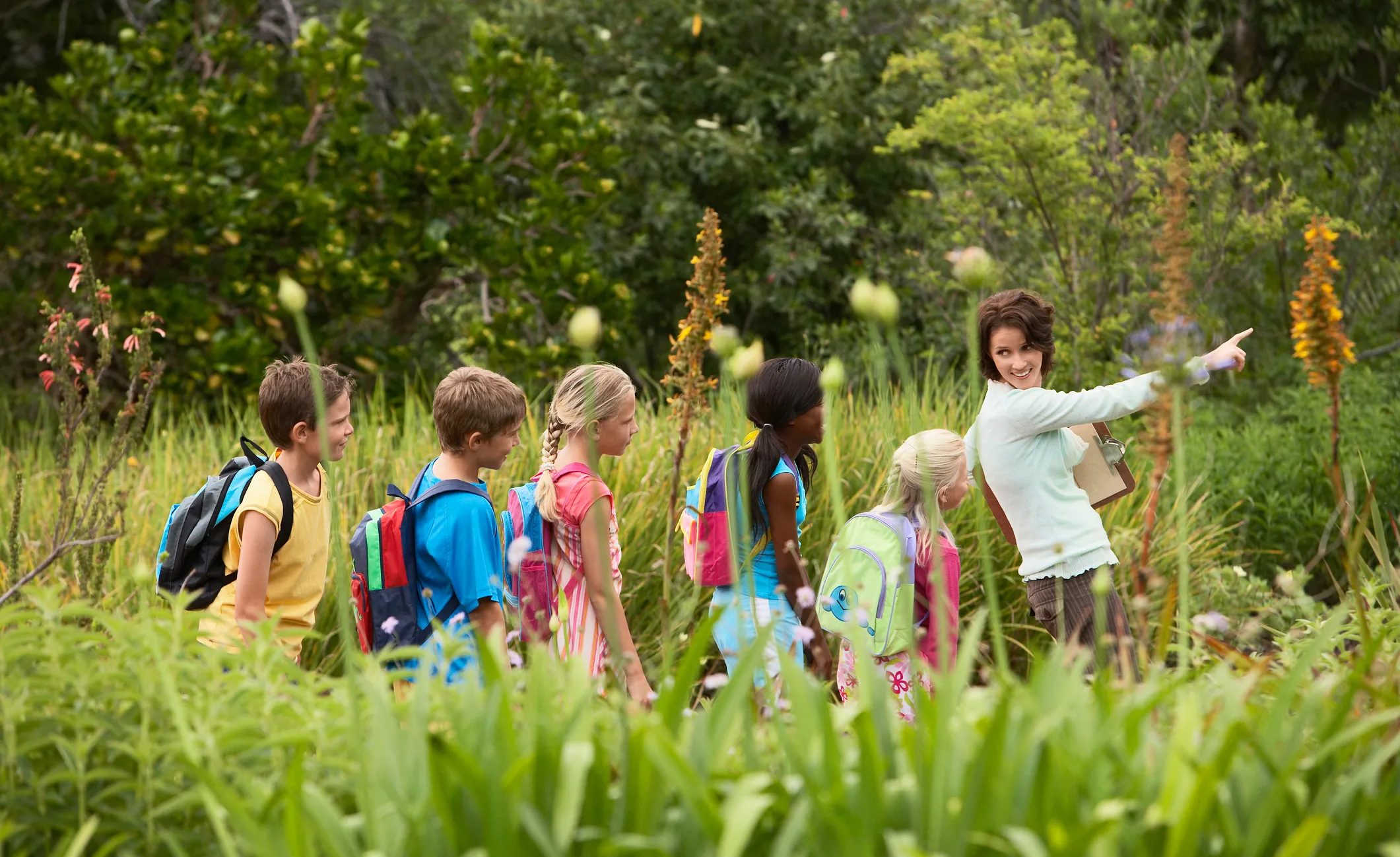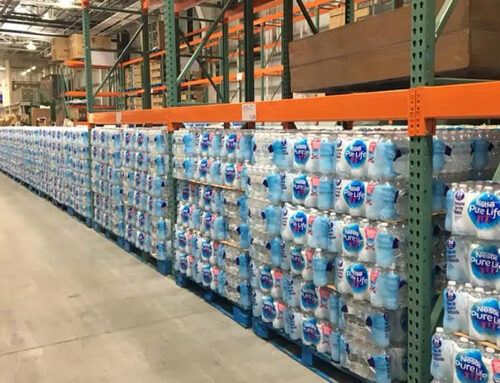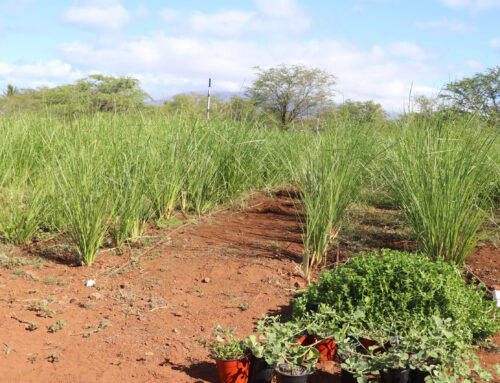We are facing a global climate crisis, widely recognized by the scientific community as human-caused. However, humans also have the opportunity to mitigate its effects. Educating youth is one of the most effective strategies for this purpose. In the U.S., climate change education is largely optional and often inadequate. This study investigates the gaps and effectiveness of various educational approaches in fostering climate change literacy and sustainable behaviors among youth from early childhood through high school, in both formal education and experiential learning opportunities.
The objective of this pilot study by Darla Palmer-Ellingson, under the Sustainable Management Graduate Studies Department at the University of Wisconsin, is to lay the ground work for innovative solutions and areas for youth climate change education improvement. This would support a larger study that provides an updated status report and climate education roadmap for education administrators, teachers, policy makers and government entities.
Introduction
Overview of the Importance of Climate Change Education for Youth
An in-depth review of education as a mitigation strategy by other researchers shows that environmental education focused on climate change could result in significant carbon emissions reduction, on a similar scale to electric vehicle adoption or rooftop solar installation (Cordero et al., 2020). A common theory is if we teach youth to connect with the environment and understand climate change, they are likely to grow a personal connection to climate solutions, and carry sustainable behaviors into adulthood. National support for systemic updates in climate change education is growing. Most Americans agree climate change should be taught in schools (Marlon et al., 2023).
A traditional classroom is not the only place to gain climate change education. The United Nations Educational, Scientific and Cultural Organization’s (UNESCO) Greening Education Partnership encourages coordinated and comprehensive action that will “prepare every learner to acquire the knowledge, skills, values, and attitudes to tackle climate change and to promote sustainable development,” (Greening Education, 2024). Building on this theme, the National Academies new initiative, Education for Thriving in a Changing Climate (Education, n.d.), brings together traditional education and informal learning experiences, focusing on programs that support informed action, while also addressing social and economic inequities.
History of Climate Change Education Development
Development of climate change education in formal curricula began in the U.S. with the National Ocean and Atmospheric Administration’s (NOAA) Climate Literacy Guide in 2009 (Climate program, 2023), and the National Academies of Sciences, Engineering and Medicine’s A Framework for K-12 Science Education in 2012 (A framework, 2012), culminating in the Next Generation Science Standards (NGSS) in 2013 (Next generation, n.d.). NGSS continues to provide a framework for educators teaching climate change across different disciplines.
Status of Climate Change Education in U.S. States
States have adopted science education standards that include climate science information on some level, but overall, little is printed or taught about climate change in public education. The North American Association of Environmental Education provides a mapping tool for K–12 climate change education policy in the U.S. (Mapping the landscape, n.d.). Statistics on how effectively states are implementing climate change education were published in 2020, with many states failing in their implementation of climate change curriculum in schools. Only 27 states received a grade of B+ or better on standards to address climate change (Making the grade? 2020).
Understanding Political Motivations That Can Impact Learning
Political polarization not only influences policy regarding climate change education at the state level, it has in part prevented adoption of nationwide science standards (Egan & Mullin, 2024).
Although polarization affects nearly all policy areas, the specific material and ideological aspects of climate-change politics make it especially vulnerable. Republican voters, influenced by fossil fuel industries or conservative ideals, see their party’s climate-change denial and resistance to renewable energy as aligned with their economic interests and values. Proposed solutions to the climate crisis typically involve government interventions such as taxes and regulations, which have historically divided Americans ideologically (Campbell & Kay, 2014). Fossil fuel and related industries have exploited this ideological division, working with the conservative movement for decades to promote an anti-regulation narrative that reinforces Republican opposition to climate change science and policy action (Layzer, 2012).
One might assume states with a vested interest in oil and gas industries would then have poor climate change education. However, only Texas, the largest fossil fuel producing state with $1.133tn in revenue projected for 2024 (Texas- state profile, 2024), received a failing grade. All other top oil and gas producing states received a grade of C or better. The remaining states with poor climate change education policy receiving a grade of D or F, including Alabama, Florida, Georgia, Indiana, Ohio, Virginia and West Virginia (Making the grade, 2020), oppose climate change education primarily based on varying degrees of climate change denial. These states are historically Republican, or Republican-leaning, with one exception. Virginia, with a grade of “F” on climate education, has been shifting to Democrat-leaning. Legislators recently passed a climate change education bill through the house and senate with bi-partisan support. However, the Governor of Virginia vetoed the bill, stating “The Standards of Learning already provides instructional material related to environmental issues,” (2024 Session, 2024) though none directly address climate change. In Florida, Governor Ron DeSantis rejected text books that contained “indoctrination” and “ideological rhetoric” about the existence of climate change and human activities’ contribution to the problem (Textbook, 2024). In Texas, the Republican controlled board of education rejected all textbooks that included climate crisis policy solutions because they were too negative towards the oil and gas industry (Salam, 2023).
There are positive examples on the political front. Pennsylvania, which had received a failing grade on climate change education, has successfully developed comprehensive science standards that address climate change, and will ultimately be incorporated across multiple grade levels and disciplines. The new standards go into effect in 2025. However, educators in numerous states are still feeling the stress of partisan politics when attempting to formulate science plans that include climate change (How politics, 2022).
Status of Institutions and Teachers in Climate Education
Even when schools want to provide more comprehensive education on climate change, teachers lack subject matter confidence, leadership support and resources, according to surveys, as reported in Education Week (Peetz, 2023). These gaps are more evident in areas with lower economic status (Cho, 2023). Teacher surveys also reveal stress from their own emotions on the topic (Clayton et al., 2017).
My own surveys and interviews show that teachers most frequently cite a lack of time as their primary concern. They are already expected to manage more responsibilities beyond their assigned classes. Consequently, the addition of new sections would necessitate the reallocation of existing tasks.
Physical and Mental Health Aspects
While not the primary focus of this study, there is an intersection of physical and mental health aspects that influence attitudes, behaviors, and learning outcomes in climate change education.
Among many resources, one report published by the American Psychological Association and ecoAmerica discusses how climate change affects mental health, contributing to stress, anxiety, and other mental health issues which influence learning outcomes and behaviors related to climate change education (Clayton et al., 2017). Half of the teachers I surveyed expressed concern over student mental health after they learned about climate change.
A research paper published by the Association for Behavior Analysis International uses COVID-19 as an example to review disruptions and impacts to learning, social justice, mental health and the economy. These observations are compared to projected climate change risks to schools, and urges that we take what was learned and adapt teaching methods before climate change perils worsen. (Newsome et al., 2023).
Literature Review
Foundations and Current State of Climate Change in K-12 Education
At the end of 2020, 20 states and the District of Columbia were using NGSS to incorporate climate change education. An additional 24 were using standards based on the NGSS framework, and 6 were following their own standards (Making the grade? 2020).
A study conducted by the National Center for Science Education revealed that 75 percent of public school science teachers include climate change in their curriculum (Mixed messages, 2016). However, a 2016 survey of 1,500 middle and high school educators indicated that they dedicate merely one to two hours to the topic throughout the entire school year (Cho, 2023).
Role of Formal Education in Climate Change Education
The extent climate change is discussed in school can vary. States with a climate change plan and strong environmental commitments correlate to more climate change content included in education policies. But in more areas, people generally agree that climate education should be taught, and students are demanding it (Wong, 2023), so why isn’t it happening (Will, 2023)? One reason is a lack of resources for teachers.
A longitudinal survey in New York Public Schools over the past seven years identified that a third of teachers felt they were having an impact addressing climate change with students. The rest said climate change was not pertinent to their lesson plan; they did not know enough about it; did not feel comfortable discussing it; or did not have the materials to teach it (Kamenetz, 2023).
To fill these gaps, more programs that provide teacher training could concurrently produce materials available to all educators. For example, the National Science Foundation provided a $25 million grant to Columbia University for teacher training in climate education. Lesson plans created by participating teachers are free for others to use from the website SubjectToClimate.org (Kamenetz, 2023). Other organizations are joining in to create resources for teachers. These include ClimeTime.org, a teacher training resource launched in Washington State, directly linking NGSS with climate science curriculum. ClimeTime also helps teachers tackle difficult classroom topics, like controversial climate subjects, and ways to teach science that respects indigenous knowledge (Resources, n.d.). NASA’s Global Learning and Observations to Benefit the Environment (GLOBE) program offers teacher training opportunities across different disciplines. Educators can get GLOBE certified in five key areas, setup a school account for students to make field observations, and contribute information to a global database. There are also Earth science storybooks and other activities for K-12 learners (Educators’ roadmap, n.d.).
Students are insisting on more education about climate change, especially in areas where information is sparse or watered down. This has prompted a wave of student advocacy, like the Green New Deal for Schools, demanding school systems undergo radical changes to face the climate crisis (Green new deal, n.d.).
Recent research found there is a strong lack of climate change content being taught in subjects outside of science. However, where such integrations exist, the positive impacts are beneficial (Mapping the landscape, 2022). One idea is for teachers in a learning environment to collaborate around a theme, so students can move seamlessly between disciplines one topic at a time. (Windschitl, 2024).
Experiential Learning Outside the Classroom
The role of science centers, museums, environmental organizations and events are important in enhancing climate change literacy. Informal sites where learning happens can play an important role in efforts to address climate change (Pizmony-Levy et al., 2023). All teachers I surveyed felt these informal learning opportunities, as well as taking education outdoors, engaged students in a fun and interesting way, reinforcing classroom learning.
Outdoor environmental education programs (e.g., camps, field trips) for youth can make a significant impression on attitudes and behaviors towards climate change. A study by Ernst and Burcak (2019) focused on how nature play influences young children’s environmental stewardship behaviors, highlighting the importance of early and consistent engagement with outdoor education. Taking science out of the lab and into nature, like parks, playgrounds or even the sidewalk can help kids focus on the living world, motivating sustainable actions in a positive way.
Examples of successful experiential learning initiatives promoting sustainability and climate action among youth include the Wild Center in New York, combining experiential learning with leadership development, resulting in tangible youth climate change actions (Wild Center, 2020). Programs like Climate Corps work with partners across the country to place emerging educators in a bridge-to-career paid fellowship program, working with youth in an outdoor learning environment.
There are many resources for parents to learn how to talk to kids about climate change at home, throughout different age levels. An online resource from Mom’s Clean Air Force (Maceachern, 2020), gathers diverse learning resources for kids, including experiments and other hands-on experiences to try, with tips for parents on how to relate the activities to climate change.
Methodology
This pilot study applied a sequential explanatory design using secondary data analysis, with defined program indicators of the current state of climate change education in the U.S. overall, in formal education and in experiential learning outside the classroom.
This was followed up with a small sample survey and interviews. A digital survey was created with Google Forms, with both open-ended and close-ended (multiple choice) questions.
Due to time constraints, and school being out for summer, informants were accessed to identify middle school science teachers to participate in a survey and follow-up interview. Initially, a politically Republican state and a Democratic state were specifically targeted to include assessment of political influence. Responses were obtained from Alaska (Republican) and Minnesota (Democrat) teachers. Both respondents taught in small rural areas. An application to post the survey in a science teacher forum on Reddit was submitted and approved as well. Additional responses were gathered from Portland, Oregon, Salem, Oregon, and Seattle, Washington.
Research Findings and Survey Results
- Climate change education is improving in the U.S., but has a long way to go.
- Training and curriculum resources for educators are improving and affordable.
- New climate change education programs are emerging that model multi-grade, multi-discipline programs.
- The status of standards and state policy on climate change education is outdated.
- The most recent nationwide status report indicates less than half of U.S. states (21) are using recommended standards for climate change curriculum.
- Even among states using recommended standards, climate change is not always a mandatory topic in science education.
- States representing 30.7% of the U.S. population provide little, or likely no time or educational information dedicated to an accurate portrayal of climate change as a predominantly human caused phenomenon in K-12 schools.
- There is a direct correlation between oil and gas lobbying regarding climate change education and how climate information is portrayed in Texas and other states.
- There is a direct correlation between conservative politics and lack of climate change education in eight states.
- Surveys and interviews with middle school science teachers indicate that:
Teachers unilaterally believe climate change is predominately human caused;
Climate change standards are in both Red and Blue states surveyed, but not required;
Teachers can address climate change topics voluntarily in both Red and Blue states surveyed;
Teachers from all schools indicated opportunities in their communities for experiential learning outside the classroom, such as field trips and events;
One teacher shared a poignant story about the impact of climate change on an indigenous community and how they feel powerless to do anything;
Two teachers expressed concern over student mental health in regards to climate change;
Teachers interviewed expressed concern regarding adding tasks to an overloaded schedule.
Limitations
While as rigorous a strategy as practical was deployed on a tight timeline, an increased number of surveys would have been more representative of U.S. states and school sizes.
Recommendations for Future Research
- Track updates of state-by-state climate change education, what topics are covered at what grades, and if topics span multiple disciplines, possibly in cooperation with an existing organization.
- Adapt surveys from initial survey and interview data, and apply to a wider sampling of teachers across U.S. states and age groups.
- Chart how state governing bodies address climate change educational standards, note political influences and summarize details.
- Document through sampling, climate change education assets and disparities in urban, suburban and rural schools.
- Document where ethnic or indigenous climate related knowledge is included in educational plans.
- Research and chart experiential learning outside the classroom by state.
- Expand research and document climate change training, curriculum and other resources for teachers.
References
2024 Session HB 1088, Governor’s veto. (2024). Virginia’s Legislative Information System. https://lis.virginia.gov/cgi-bin/legp604.exe?241+amd+HB1088AG
A Framework for K-12 Science Education. (2012). National Academies. https://nap.nationalacademies.org/catalog/13165/a-framework-for-k-12-science-education-practices-crosscutting-concepts
Campbell, Troy H., & Kay, Aaron C. (2014). Solution aversion: On the relation between ideology and motivated disbelief. Journal of Personality and Social Psychology 107:809–24.
Cho, R. (2023, Feb. 9). Climate education in the U.S.: Where it stands and why it matters. Columbia Climate School. https://news.climate.columbia.edu/2023/02/09/climate-education-in-the-u-s-where-it-stands-and-why-it-matters/
Clayton, S., Manning, C., Krygsman, K., & Speiser, M. (2017). Mental health and our changing climate: Impacts, implications, and guidance. American Psychological Association and ecoAmerica. https://www.apa.org/news/press/releases/2017/03/mental-health-climate.pdf
Climate Time. (n.d.) Resources. https://www.climetime.org/resources/Rocque RJ, Beaudoin C, Ndjaboue R, et al. (2019).
Cordero E.C., Centeno D., Todd A.M. (2020). The role of climate change education on individual lifetime carbon emissions. PLOS ONE 15(2): e0206266. https://doi.org/10.1371/journal.pone.0206266
Climate program office. (2023, November 16). NOAA. https://cpo.noaa.gov/divisions-programs/communication-education-and-engagement/education/
Education for thriving in a changing climate. (n.d.). National Academies. https://www.nationalacademies.org/our-work/education-for-thriving-in-a-changing-climate
Educators’ roadmap (n.d.) The Globe Program.
https://www.globe.gov/get-trained/user-roadmaps/formal-educators
Egan, P. J., Mullin, M. (2024). U.S. partisan polarization on climate change: Can stalemate give way to opportunity? PS: Political Science & Politics, 57(1), 30–35. doi:10.1017/S1049096523000495
Ernst, J., & Burcak, F. (2019). Young children’s contributions to sustainability: The influence of nature play on environmental stewardship behaviors. Environmental Education Research, 25(4), 604-619.
Green new deal for public schools. (n.d.). Green New Schools. https://greennewschools.com/
Greening education partnership. (2024, July 12). UNESCO. https://www.unesco.org/en/sustainable-development/education/greening-future?hub=761
How politics affects education in the United States. (2022, Sept. 13). Education Writers Association. https://ewa.org/news-explainers/how-politics-affects-education
Kamenetz, A. (2023, Aug. 2). Want teachers to teach climate change? You’ve got to train them. The Hechinger Report. https://hechingerreport.org/column-want-teachers-to-teach-climate-change-youve-got-to-train-them/
Layzer, Judith A. (2014). Open for business: Conservatives’ opposition to environmental regulation. Cambridge, MA: MIT Press.
Maceachern, D. (2020, April 13). 8 tools for kids to learn about climate change at home. Mom’s Clean Air Force. https://www.momscleanairforce.org/8-tools-kids-learn-about-climate-change-at-home/
Making the grade? By the numbers. (2020, Oct.). National Center for Science Education and the Texas Freedom Network Education Fund. https://climategrades.org/#numbers
Mapping the landscape of K–12 climate change education policy in the United States. (2022, June 9). EEPRO. https://eepro.naaee.org/resource/mapping-landscape-k-12-climate-change-education-policy-united-states
Marlon, J., Goddard, M., Howe, P., Mildenberger, M., Jefferson, M., Fine, E., & Leiserowitz, A. (2023, Dec. 13). Yale climate opinion maps. Yale Program on Climate Change Communication. https://climatecommunication.yale.edu/visualizations-data/ycom-us/
Mixed messages: How climate change is taught in America’s public schools. (2016, March). National Center for Science Education. https://ncse.ngo/files/MixedMessagesReport.pdf
Moser, S. C., & Hart, J. A. (2018). The long arm of climate change: societal teleconnections and the future of climate change impacts studies. Climatic Change, 149(2), 99-110.
Next Generation Science Standards. (n.d.). http://www.nextgenscience.org/
Newsome, D., Newsome, K.B., Miller, S.A. (2023, May 12). Teaching, learning, and climate change: Anticipated impacts and mitigation strategies for educators. Association for Behavior Analysis International. https://doi.org/10.1007/s42822-023-00129-2
Peetz, C. (2023, Mar. 6). Schools aren’t ready for the climate crisis. Education Week. https://www.edweek.org/leadership/schools-arent-ready-for-the-climate-crisis-a-new-report-lays-out-how-to-change-that/2023/03
Pizmony‐Levy, O., Koch, P. A., Rivet, A. E. (2023). Green light for comprehensive climate change education. New York: Teachers College, Columbia University. https://academiccommons.columbia.edu/doi/10.7916/jmzp-ay10
Health effects of climate change: an overview of systematic reviews. BMJ Open. doi: 10.1136/bmjopen-2020-046333
Salam, Erum. (2023, Nov. 17). Texas: Republican-controlled school board votes against climate textbooks. The Guardian. https://www.theguardian.com/us-news/2023/nov/17/texas-republican-school-board-climate-textbooks
Texas- State Economic Profile. (2024). IBIS World. https://www.ibisworld.com/united-states/economic-profiles/texas/
Textbook authors told climate change references must be cut to get Florida’s OK. (2024, July 6). Orlando Sentinal. https://www.orlandosentinel.com/2024/07/05/textbook-authors-told-climate-change-references-must-be-cut-to-get-floridas-ok/
Wild Center launches toolkit to help start more Youth Climate Summits. (2020, March 14). Adirondack Daily Enterprise. https://www.adirondackdailyenterprise.com/news/local-news/2020/03/wild-center-launches-toolkit-to-help-start-more-youth-climate-summits/
Will, M. (2023, March 3). If climate change education matters, why don’t all teachers teach it? Education Week. https://www.edweek.org/teaching-learning/if-climate-change-education-matters-why-dont-all-teachers-teach-it/2023/03
Windschitl, M. (2024, April 1). We can all teach about climate change. ASCD. https://ascd.org/el/articles/we-can-all-teach-climate-change
Wong, A. (2023, Sept. 24). How to teach about climate change? Education in many U.S. schools is lacking, students claim. USA TODAY. https://www.usatoday.com/story/news/education/2023/09/24/climate-week-2023-youth-pr





